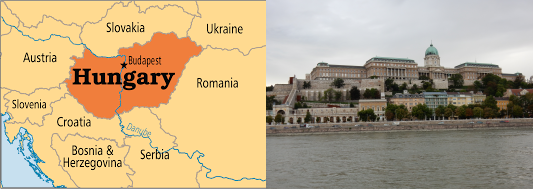Search posts by keywords:
Filter posts by author:
Related NEAT Reports
Other blog posts
posted on Sep 27, 2017 by Nikki Edwards

I was privileged to be invited recently to a customer and analyst event in Budapest, Hungary hosted by Cielo. Great, I thought – I’ve never been there, maybe I’ll see the Danube and a few historic buildings. And from that perspective, Budapest did not disappoint; it was understandable why there were so many tourists visiting, enjoying the hot September weather. But the event itself was a real eye-opener to the potential of this city and country, why it is a very cosmopolitan place to live and work, and why so many international organizations have set up offices/call centers here.
So what attracted an organization like Cielo to set up a delivery center (DC) here? On the second anniversary of the opening of its Budapest DC, Cielo’s Matt Jones explained why. At the time, when Cielo was hiring 10,000 professionals annually across 20 countries, many being in central Europe, it needed a DC location that would best serve its mix of clients. Cielo looked at a number of cities: Kiev, Ukraine; Prague, Czech Republic; Warsaw, Poland; and Budapest, Hungary. Of these, Budapest proved most suitable for Cielo’s DACH clients (those in Germany, Austria and Switzerland).
A number of criteria were taken into consideration. To ensure Cielo could live by its “we become you” high touch mantra for all of its European clients, it needed to hire qualified talent with strong bi- or multi-lingual capability. The table below shows the comparison between Budapest, Prague and Warsaw.
Whilst the three cities were strong regarding qualified and bi- or multi-lingual talent, Budapest better matched the languages used by its clients and had the greatest number of universities from which to source talent for itself and on behalf of its clients. In 2015, Cielo’s Budapest DC opened with three employees. Now it has 63 employees, speaking 18 languages (many employees speaking three or more), supports 17 clients hiring in 41 countries. The availability of local talent has enabled Cielo’s DC to scale quickly based on client demand.
The availability of such talent has been a key factor in other shared service centers (SSCs)/DCs being located in Hungary, as it is now the third largest SSC market (with over 100 SSCs) after Poland and the Czech Republic, as business process outsourcing has taken off in the region, with ongoing investments coming from Western Europe or the U.S.
Another advantage for Budapest is its location in the center of Hungary, at the crossroads of three main pan-European transportation corridors. According to HIPA (2017), Hungary has more than 1,800km of built motorways (with 690km planned), the third highest road density in Europe, and the fifth most dense rail network (7,712km). With 5 airports too, Budapest is a two-hour flight from most places in Europe. Budapest’s geographic accessibility was another key reason for Cielo to locate its European DC there.
Hungary also has the highest rate of broadband penetration among the V4 countries (a cultural and political alliance between the Czech Republic, Hungary, Poland and Slovakia) at 133% of the EU average, and the world’s third fastest 4G network speed (this maybe something to do with the fact that five of the major global network/telecommunications companies are located there), giving potential investors something to consider.
Cielo’s clients supported from its Budapest center come from the following sectors: engineering, technology, manufacturing, FMCG, pharma, medical devices, diagnostics, healthcare and insurance. Hungary itself has a strong presence in automotive engineering (with a $26.5 billion production value) with the likes of Audi, Mercedes Benz, Suzuki and Opel (and a further 39 of the top 100 automotive suppliers) operating from there, mainly based in western Hungary. The technology sector is strong, with 15 of the largest global technology companies (including IBM, Oracle and SAP) having a presence in Hungary, all having been there for over 10 years. The food industry is also a strong sector, with nine large companies investing in Hungary in 2016-17 (including Nestlé). This offers Cielo the opportunity to grow its client base in Hungary further, in industries with which it has a strong track record.
With the Hungarian government offering state aid (cash grants or tax allowances) mostly in either western or eastern Hungary in the areas of investment, training, R&D, and employment tax allowances, Hungary is likely to continue to attract international organizations to set up a presence there, giving Cielo further opportunity to grow.
So, at first glance, it seems that there are plenty of appetizers on Hungary’s menu to attract investors into the country. However, closer inspection reveals that some things are not so appetizing about the country’s labor market. Hungary is proving to be a highly competitive location in the war for talent, and over 70% of organizations are already struggling to attract the right candidates (source: Profession.hu, 2017). Motivators cited by candidates are a good salary, fair management/leadership, a stable workplace, fair working hours, and an interesting job. Candidate pain points are lack of useful information in job descriptions to make informed decisions about the role, and no communication from the hiring organization at the end of the hiring process. Profession.hu suggests that organizations need to embrace the concept of candidate experience, develop persona-based employer branding, leverage technology to speed up the recruitment process, provide the right information to candidates, and offer interesting roles.
Cielo, being one of very few talent acquisition vendors located in Hungary, is uniquely positioned to leverage its expertise with Hungarian-based organizations. So, Cielo – what are you waiting for?
